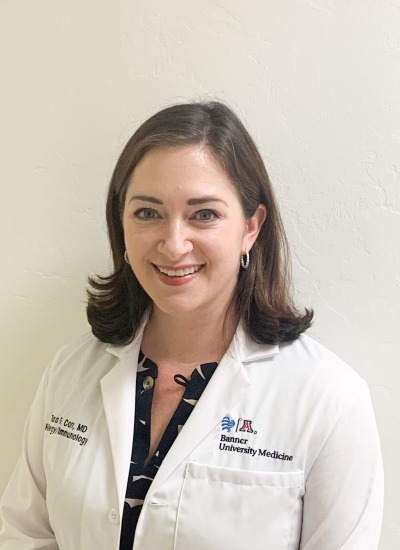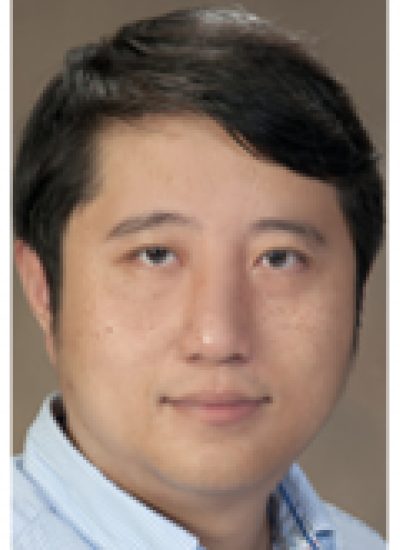Dr Tara Carr is a board certified Allergist/Immunologist physician with subspecialty training and experience in the evaluation and treatment of allergic and immunologic diseases in both children and adults. She is focused on studying the impact of environmental exposures on development and heterogeneity of allergic disease, with an emphasis on asthma. She has significant clinical research experience in pediatric and adult allergic disease and asthma within the Asthma & Airway Disease Research Center at the University of Arizona. She has led multiple industry trials at the research center as primary investigator, in areas of severe asthma, nasal polyps, and food allergy. She has also been a sub-investigator within three large NHLBI-funded clinical research networks in asthma (PrecISE, AsthmaNet, American Lung Association-Airway Clinical Research Centers), and served as a clinical core co-director for the Dysfunction of Innate Immunity in Asthma U19 program. Her roles include leadership of the research team, recruitment of participants, and oversight of procedures and adverse reactions among those participants. At Bio5, Dr Carr leads the immunology and genetics laboratory responsible for receiving all samples collected as part of these studies, processing those samples for future use, biobanking those samples in a longitudinal repository, and running various experiments on those samples as necessary for the planned study. A sub-investigator in the Tucson Children’s Respiratory Study, Dr Carr is contributing to longstanding efforts toward understanding early life risk factors of lung disease by leading metabolic, allergic, and immunologic analyses of longitudinally collected samples. As co-investigator for the Binational Early Asthma and Microbiome Study, Dr Carr leads the scientific effort to collect, transport, and store human and environmental samples from Nogales Mexico and Tucson. Dr Carr is responsible for describing the immunology of pregnant women and the immunological development of their babies, with a goal of understanding which maternal and environmental factors influence allergic (asthma-prone) and non-allergic immune development.
To this end, Dr Carr’s lab utilizes a broad range of experimental methods- often in collaboration with other Bio5 researchers- to describe the biological characteristics of asthma and allergic disease, including DNA and RNA sequencing, protein measurement by ELISA, Immulite and Luminex, culture and stimulation of peripheral blood mononuclear cells with cellular phenotyping, and metabolomics.





